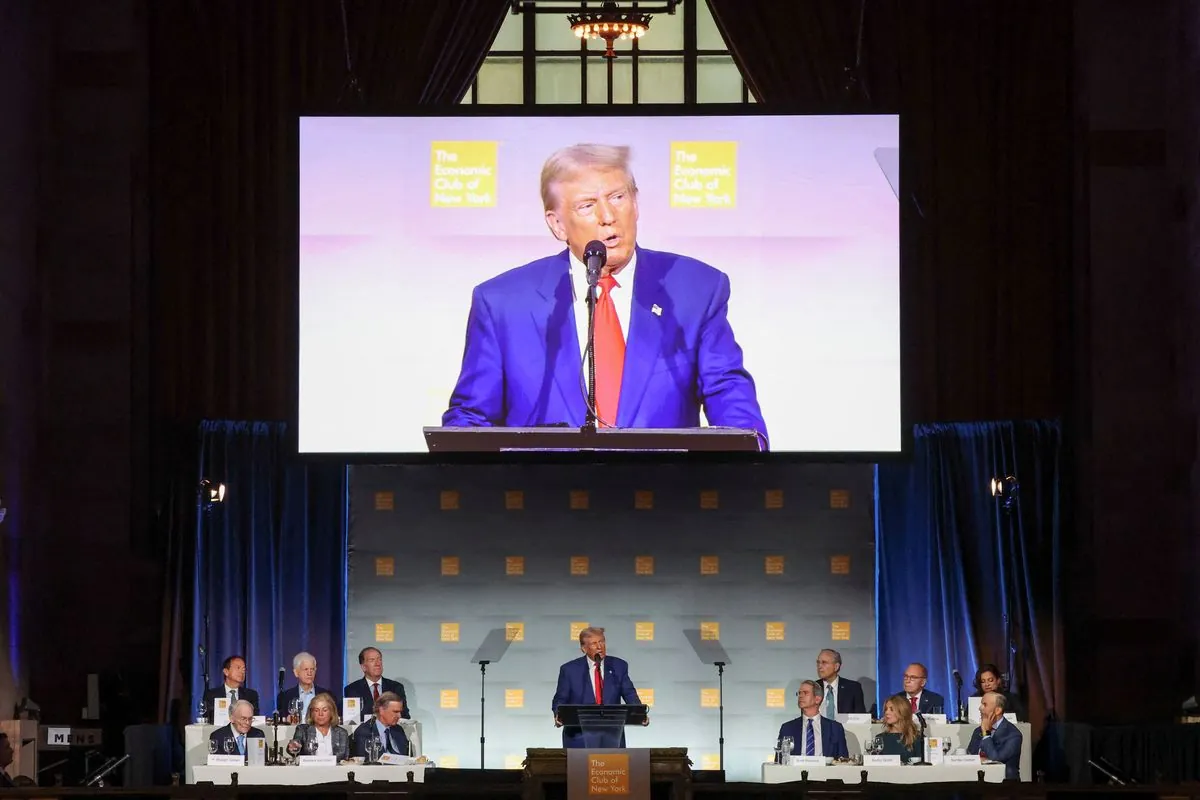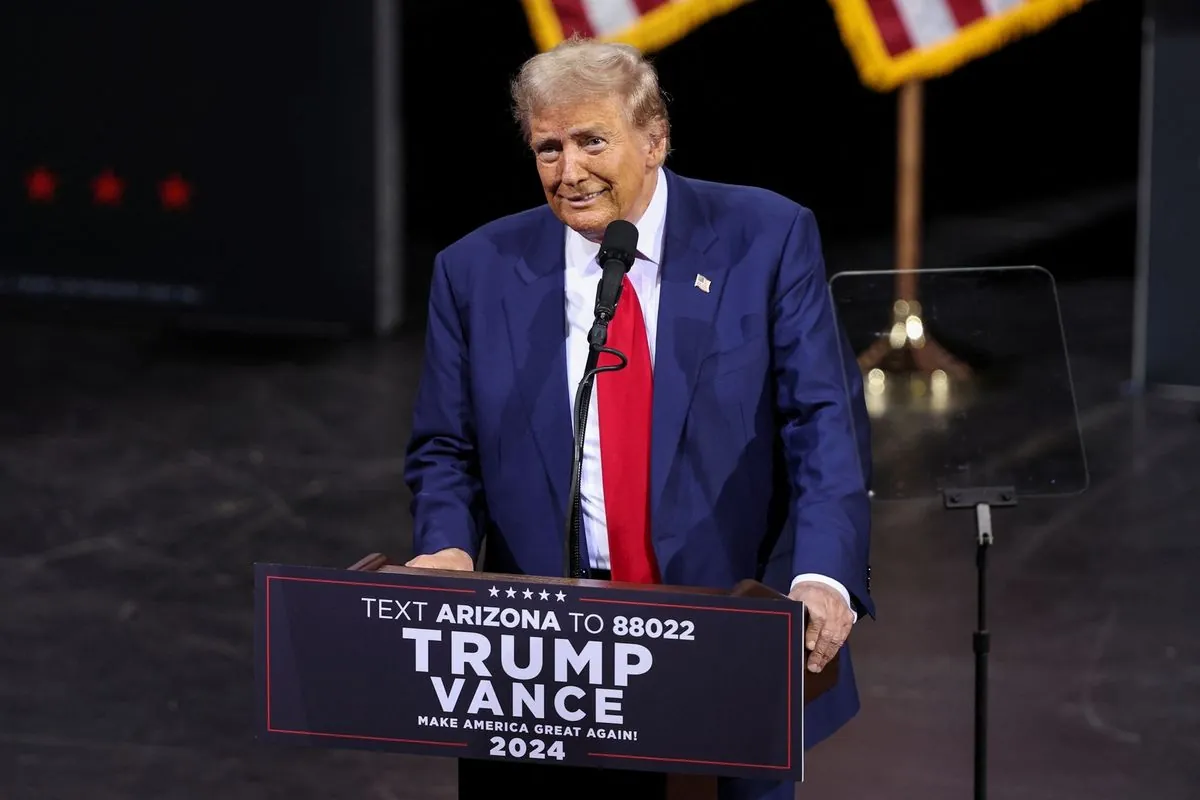Trump's Tariff Rhetoric Intensifies, Challenging GOP Trade Stance
Former President Trump's escalating tariff proposals clash with traditional Republican trade policies. His recent speech advocating a sovereign wealth fund funded by tariffs highlights the growing divide within the GOP on trade issues.

In a recent address to the Economic Club of New York, former President Donald Trump surprised attendees with a proposal to establish a U.S. sovereign wealth fund financed by extensive tariff revenues. This unexpected suggestion, made without prior consultation with his advisers, underscores the growing divide between Trump's trade rhetoric and traditional Republican economic policies.
The Economic Club, which has hosted every U.S. president since William Howard Taft, provided a platform for Trump to articulate his evolving trade agenda. His proposal for a sovereign wealth fund, typically associated with commodity-exporting nations, marks a significant departure from conventional GOP economic thinking.
Trump's tariff proposals have become increasingly extreme since leaving office in 2021. He now advocates for import duties on all $2.7 trillion of annual U.S. imports, a dramatic escalation from the $380 billion in tariffs imposed during his presidency. This shift has placed many Republican lawmakers in an awkward position, attempting to reconcile their support for Trump with their traditional free-trade stance.
"Tariffs are the greatest thing ever invented"
Many GOP members have chosen to interpret Trump's tariff rhetoric as a negotiation tactic rather than a concrete policy proposal. Rep. Dan Meuser (R-Pa.) suggested that Trump floats tariffs "as a tool to get what we want," viewing it as messaging to set the tone for trade negotiations.
However, Trump's recent statements contradict this interpretation. He has repeatedly framed tariffs as a positive force for the U.S. economy, claiming they "don't affect our country" and can solve issues ranging from foreign policy crises to inflation. These assertions stand in stark contrast to mainstream economic thinking.

Economists warn of potentially severe consequences if Trump's tariff proposals were implemented. The Peterson Institute for International Economics, a renowned think tank established in 1981, estimates that a 10% universal tariff could reduce the median household's after-tax income by over $2,600 annually.
Despite these warnings, Trump has expanded his tariff rhetoric to encompass various policy areas. He has suggested using tariff revenue to fund child care programs and trillions in tax cuts, and even proposed a "100 percent" tariff to deter countries from going to war.
The Republican Party, which has historically championed free trade since the mid-19th century, now finds itself at a crossroads. While some GOP senators have expressed disapproval of Trump's most aggressive trade proposals, many party members continue to downplay or reinterpret his statements.
Brian Riedl, a former aide to Senator Rob Portman, suggests that many Republican officials hope Trump's tariff threats are merely bluster aimed at improving America's global trade position. However, he warns that this view may be overly optimistic.
As the 2024 presidential race unfolds, the tension between Trump's trade agenda and traditional Republican economic principles continues to grow. This divide highlights the ongoing transformation of the GOP's economic platform and the challenges it faces in reconciling its past with its potential future under Trump's leadership.


































